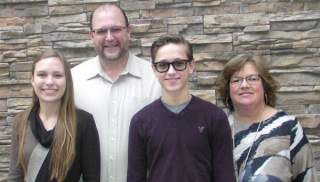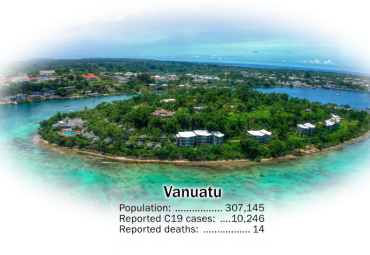Learning From One Another How To Be Heard
September 1, 2022 marked the beginning of Fiscal Year 2023 for Global Media Outreach. We hold an annual “Fiscal Year Kickoff” event with our team members from across the world to plan and strategize. This year we hosted members of our Spanish, Portuguese, Indonesian and MENA teams. Those who were unable to obtain passports for the trip also joined us virtually.

One of the international team leaders stated that it felt like we’re really starting to learn from one another. Both the MENA (“Middle-East & North Africa,” with Arabic, Farsi, French, Turkish and Urdu languages) and Indonesian teams inspired us by detailing their approaches with their Muslim-background seekers. In Arabic-speaking cultures, they’re far more hostile to Christianity, equating it with the pop stars on western TV and with American politics. They’re more knowledgeable about the Qur’an than, (for instance), Muslims in the Indonesian culture, and can be easily overwhelmed with foreign concepts about God’s character or distracted by arguments about poverty, war or polygamy. Online Missionaries create a safe space to discuss spirituality, and conversion often take quite some time and are more likely to occur in what we’d call discipleship groups than a straightforward gospel presentation. God’s nature as the Great Provider, Who offers them rest for their souls and relief from their burdens, has been the most fruitful avenue for beginning these conversations. As they work in this difficult field, they do so in a severe economic crisis and a dangerous social environment. Two years ago, their offices were destroyed in the Beirut explosion that shocked the world.
In Indonesia, the world’s largest Muslim country, it’s not even possible to be an “atheist” as far as the government is concerned. A government ID requires a declared religion: Muslim, Catholic, Christian, Hindu, Buddhist or Confucianism are your choices. It’s actually this connection to essential identity that is a challenging aspect of conversion for Indonesians. Imagine what it would mean to have to register a change in religion with the government! The Indonesian Muslims may not understand Arabic as well, but it’s their earnest desire to be more Muslim than the Arabic Muslims. They struggle earnestly to recite the Qur’an and they do what they’re told.
From Brazil, the world’s 5th largest country, our Language Director, Marcelo, told us of the 10 nations where Portuguese is spoken, and the great deal of linguistic variation: words for everyday things are different in different in the South American, African and European countries. About half of Brazil’s citizens are Catholic, while less than a third are evangelical Christians.
When reaching Brazilian Portuguese speakers, Marcelo and his team keep the fact that there are big economic and social difficulties to face there. Depression is on the rise, but “Christianese” language, like “blessing,” praise or even prayer, tends to fall flat. Brazilians enjoy nature and the outdoors, so connecting God’s love and wisdom to the beauty of Creation is helpful.
In African Portuguese-speaking contexts, their ads emphasize God as Caregiver and Sovereign offering the hope of eternal life. They must be careful to use terms that are easily understood, and media has to be simple, as Internet service can be very expensive for them. Yet, as Marcelo puts it, “in the middle of the jungle, they don’t have anything, but they have Internet and a phone.”
Some of these cultural insights might bring us a growing uneasiness—the things our international staff members mention are also being reflected in America’s younger generations. We’re transitioning from a sadly lukewarm “Christian” culture to one that is becoming openly hostile to genuine Christianity (often while trying to tell us their upside-down interpretation of Jesus’ teachings are the authentic version). Survey after survey informs us that evangelical Christians make up the lowest percentage ever of America’s population. Survey after survey also reveals that this lower-than-ever percentage is outrageously ignorant of what being an evangelical Christian means.
The past eight or so years have seemed like a whiplash-inducing 180° turn in the opposite direction of the way we should be going. Not only in the rancorous debates over socio-political issues and the promotion of what are obvious perversions to anyone not determined to turn a blind eye toward such things, not only in the hypocrisy and division within our own (so-called) evangelical Christian ranks, but also in the loss of freedoms and the hijacking and redefinition of virtues such as kindness to justify censorship. On the heels of these trends is even deeper ignorance, corruption and perversion, greater persecution and deep spiritual darkness; great suffering is in store for this sad world if we continue.
Missionary “Brother Andrew” van der Bijl died last week at the age of 94. Famous for being “God’s Smuggler” behind the iron curtain in the 1960s, he was also active in the Muslim world in the 1970s-1990s. As far back as 1989, he had written that if we do not go to these people with the gospel, they would come to us as revolutionaries with the sword.

Our opportunity to embrace the revival God wants more than any of us may be running out. The unprecedented freedom we’ve enjoyed in America is slipping through our fingers. Please pray for us as we redouble our efforts to reach our own nation, and work to bridge the communication challenges of reaching others. Thank you for your faithful support of our work through your prayers, gifts and encouragement!
Love, in Christ,


One Day Closer!
Romans 13:11
 We're full-time staff members with Campus Crusade for Christ, assigned to Global Media Outreach Since they began in 2004. Our ministry's process is today's safest and most cost-effective way to reach seekers all over the world and follow up with them individually.
We are fully faith-supported and must maintain a team of ministry partners, with whom we share regular updates and prayer concerns, in order to continue serving full-time.
We're full-time staff members with Campus Crusade for Christ, assigned to Global Media Outreach Since they began in 2004. Our ministry's process is today's safest and most cost-effective way to reach seekers all over the world and follow up with them individually.
We are fully faith-supported and must maintain a team of ministry partners, with whom we share regular updates and prayer concerns, in order to continue serving full-time.













